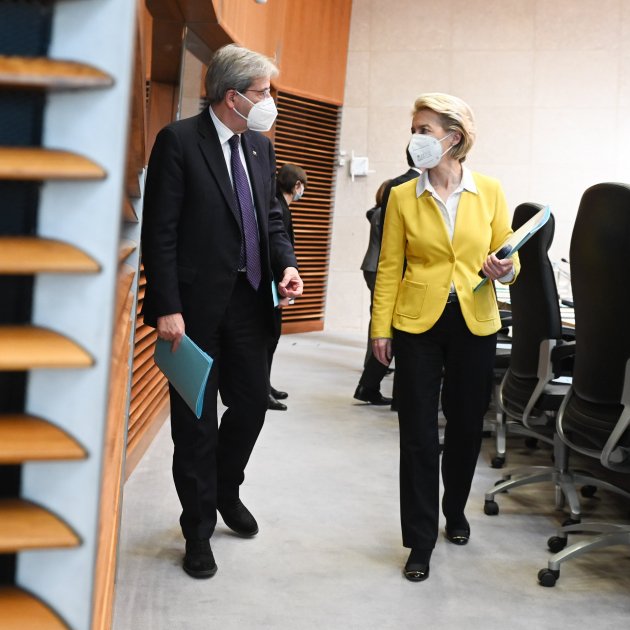The European Commission has delivered a tough blow to the Spanish government with its downward revision of Spanish GDP growth for this year and next. According to new forecasts, the Spanish economy will grow by 4.6% in 2021, a significant cut of 1.6 percentage points compared to the estimate it made in July, of 6.2% growth. As well, inflation at the end of this year is likely to reach 2.8%.
The European executive's updated economic forecasts also point to 5.5% growth in Spain's GDP in 2022, a rate which will then moderate to 4.4% a year later. According to Brussels' calculations, Spain will be the last of the four major euro-zone economies to recover the GDP level it had before the coronavirus crisis: it will not do so until the first quarter of 2023, while Germany, France and Italy will get there before the end of 2022.
These figures contrast with the Spanish government's own economic optimism, painting a much brighter macroeconomic picture in its most recent numbers, which predict a rise in GDP of 6.5% this year and an expansion that will reach 7% in 2022. In fact, the governor of the Bank of Spain, Fernando Hernández de Cos, warned a month ago in an appearance in Congress that the Spanish economy would not grow as much as the central government had predicted. He announced a "significant downward revision" of the forecasts for this year and next, as the European Commission has done today.
Price rises
The forecasts see a scenario of rising prices, with inflation set to reach 2.8% this year due to the hikes in gas and electricity charges. Energy prices, argues Brussels, will remain at "record levels" until the second quarter of 2022 and further presure will come from the rises in pensions necessary so that they keep pace with the Consumer Price Index.
However, the economic services of the EU executive believe that the slow recovery in employment "should help to contain wages" and limit a rising price spiral. Therefore, it predicts a downward path in inflation aftre the end of this year, to 2.1% in 2022 and 0.7% in 2023.
Strong private consumption
The European Commission emphasizes that the services sector is "finally" giving support to the Spanish recovery and stresses that private consumption will continue to be "strong" thanks to the "boost" from savings that have accumulated during the pandemic and job creation. However, although the uncertainty "has been significantly reduced thanks to the control of the health situation in Spain", the EU executive warns of the existence of "several risks" for the future.
Among them he mentions the “persistence or resurgence” of the Covid-19 virus in other countries, which may affect economic growth through reduced international tourism arrivals. But it also points out that supply-side “bottlenecks”, as well as energy and transport prices, could “delay” recovery in the short term.
On the positive side, the Commission stresses that the recovery plan will “gain traction” over the months ahead, raising both public and private investment. However, it warns that “mismatches” in the employment market may have a negative effect on planned investments for green and digital transitions.
In the main image, the president of the European Commission, Ursula von der Leyen, with the European economic commissioner, Paolo Gentiloni / ACN
